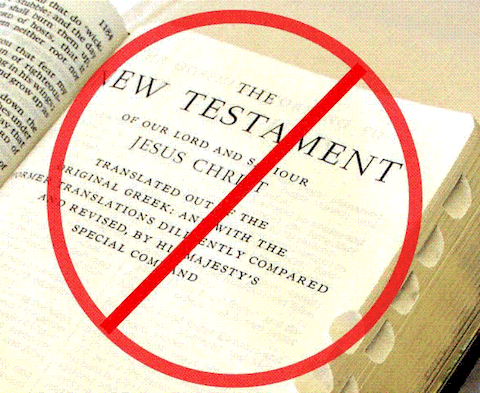
1001 Errors in the Christian Bible
Home
Dedication
Matthew
Mark
Luke
John
Acts
Contact Us
Mark -- Errrors 210-216
#210
Mark 10: (KJV)
46 “And they came to Jericho: and as he went out of Jericho with
his disciples and a great number of people, blind Bartimaeus, the son
of Timaeus, sat by the highway side begging.”
The Jews of Jesus’ time would have spoken Aramaic. “Bar”
in Aramaic means “son”. The author of “Mark” likely
saw “Bartimaeus” written as one and two words in Greek and mistakenly
thought that they were two separate names and didn’t realize that
when it was written as one word it still meant “son of Timaeus”.
Note that “Matthew” and “Luke” apparently realized
that writing “Bartimaeus, the son of Timaeus” was just saying
the same thing twice so even though they copy Mark’s story for the
most part, they ditch the name. A few modern Christian translations put
“son of Timaeus” in parenthesis to make it look like the second
“son of Timaeus” is a translation of the name and not a description
of a relationship.
#211
Mark 10: (KJV)
46 “And they came to Jericho: and as he went out of Jericho with
his disciples and a great number of people, blind Bartimaeus, the son
of Timaeus, sat by the highway side begging.”
Compare to:
Matthew 20:
29 “And as they departed from Jericho, a great multitude followed
him. 30 And, behold, two blind men sitting by the way side, when they
heard that Jesus passed by, cried out, saying, Have mercy on us, O Lord,
thou son of David.”
As mentioned above “Matthew” likely dropped “Mark’s”
mention of Bar-Timaeus because he didn’t know what Mark was trying
to say and in typical fashion has multiplied one blind man into two.
#212
Mark 10: (KJV)
51 “And Jesus answered and said unto him, What wilt thou that
I should do unto thee? The blind man said unto him, Lord, that I might
receive my sight.”
Compare to:
Matthew 20: (KJV)
32 “And Jesus stood still, and called them, and said, What will
ye that I shall do unto you? 33 They say unto him, Lord, that our eyes
may be opened.”
In “Mark” the Greek word translated by KJV as “Lord”
is “Rabboni” which should be translated as “teacher”
or “master” as every other modern Christian translation uses.
Obviously, KJV translated “Lord” to avoid having a difference
with “Matthew”. “Lord” is what the Christians of “Matthew’s”
time referred to Jesus as. The Jews of Jesus’ time would have referred
to him as “teacher” or “master”. So Matthew has an
anachronistic “Lord”.
#213
Mark 10: (KJV)
52 "And Jesus said unto him, Go thy way; thy faith hath made thee
whole. And immediately he received his sight, and followed Jesus in the
way.”
Compare to:
Matthew 20: (KJV)
34 “So Jesus had compassion on them, and touched their eyes: and
immediately their eyes received sight, and they followed him.”
According to “Mark” the blind man’s faith cured him. According
to “Matthew” Jesus’ touch cured them.
#214
Mark 11: (KJV)
2 “And saith unto them, Go your way into the village over against
you: and as soon as ye be entered into it, ye shall find a colt tied,
whereon never man sat; loose him, and bring him.”
Compare to:
Matthew 21: (KJV)
2 “Saying unto them, Go into the village over against you, and
straightway ye shall find an ass tied, and a colt with her: loose them,
and bring them unto me.”
Mark’s Jesus’ is looking for one donkey while Matthew’s
Jesus is looking for two. Another example of “Matthew’s”
seeing double.
#215
Mark 11: (KJV)
4 “And they went their way, and found the colt tied by the door
without in a place where two ways met; and they loose him.”
Compare to:
Matthew 21: (KJV)
7 “And brought the ass, and the colt, and put on them their clothes,
and they set him thereon.”
“Mark” finds one donkey while “Matthew” finds two.
I can just picture Caiaphas going outside after a hard day at the office
and saying, “where the hell is my ride?”.
#216
Mark 11: (KJV)
8 “And many spread their garments in the way: and others cut down
branches off the trees, and strawed them in the way.”
Compare to:
Matthew 21: (KJV)
8 “And a very great multitude spread their garments in the way;
others cut down branches from the trees, and strawed them in the way.”
KJV’s “branches off the trees” for “Mark” is
a mistranslation. The underlying Greek means leaves or straw like material
normally used for bedding and uses the word for “fields” not
“trees”. “Matthew” has magically transformed the straw
from the fields into branches from trees.